New hard-right leadership agreed to a meeting in Aqaba that previous centrist coalition refused to contemplate, with PM’s desire to keep tensions in check winning out over ideology
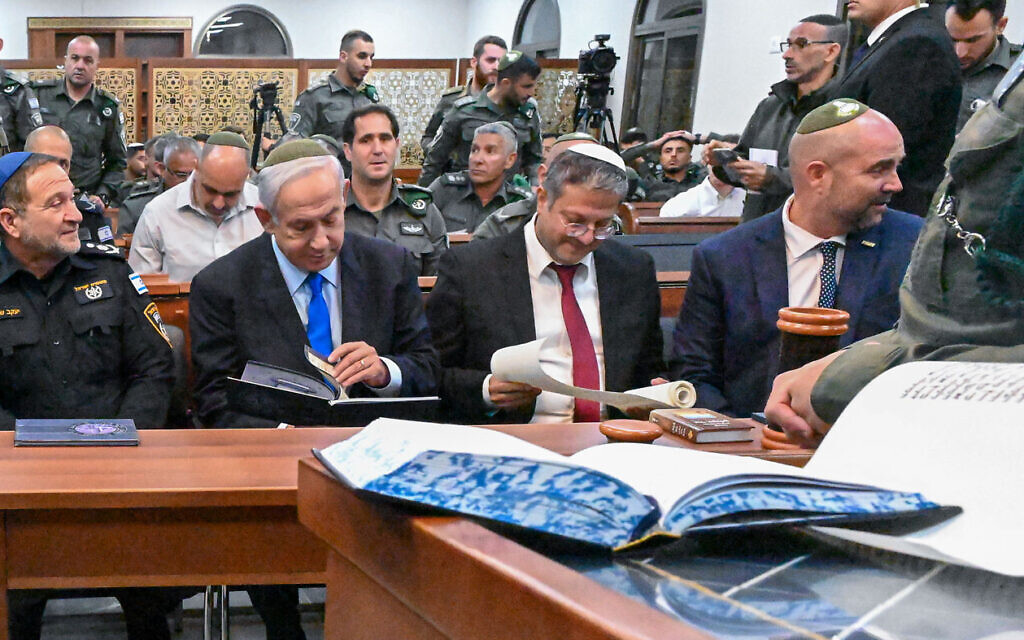
WASHINGTON — There are many reasons to hang caveats on the regional summit that Israel and the Palestinian Authority attended last month in the Jordanian resort city of Aqaba.
No diplomatic breakthrough was reached, of course, and the little that the sides did commit to in the presence of American, Jordanian and Egyptian interlocutors was dismissed and downplayed by Israeli ministers before the ink from the Aqaba Joint Communique had even dried.
And yet, the fact that senior Israeli and Palestinian officials were willing to meet for an official summit, amid an ongoing wave of violence not seen in 15 years, was noteworthy in and of itself. The communique’s scope was modest, but it did see the sides reaffirm all previous agreements between them — including the Oslo Accords, which were meant to pave the way to Palestinian self-determination, deeply opposed by the current Israeli government.
Israel and the PA also agreed to temporarily hold off on “unilateral measures” opposed by the other side. This included an Israeli commitment not to advance plans for new settlement homes for four months and not to advance the legalization of West Bank outposts for six months.
The Aqaba meeting was not just a security conference for military generals and intelligence officers, but also a political one attended by senior Israeli officials, including Foreign Ministry director-general Ronen Levi and PA Civil Affairs Minister Hussein al-Sheikh.
A senior Israeli official briefing The Times of Israel this week referred to the conference as a “political gathering” — a classification that the previous government, which included the dovish Labor and Meretz parties, would never have dared to use.
That 2021-2022 coalition’s leaders might have called PA President Mahmoud Abbas on the holidays and even invited him into their homes, but — wary of being pegged as leftists by the right-wing opposition at the time — officials were quick to characterize those encounters as strictly security-focused, rejecting any notion that they were even a prelude to political negotiations
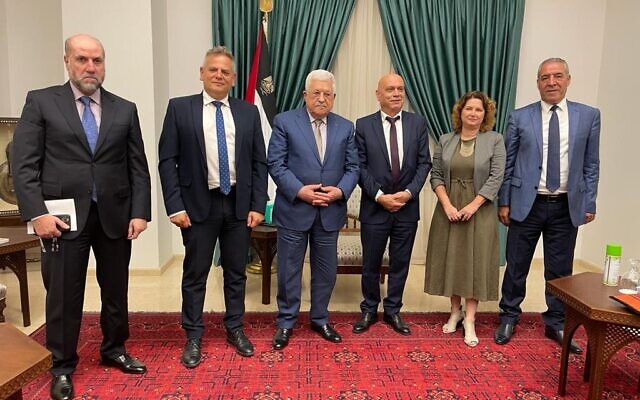
So how did this new government, the most right-wing in Israel’s history, the government of Prime Minister Benjamin Netanyahu, Finance Minister Bezalel Smotrich and National Security Minister Itamar Ben Gvir — who have long boasted of their efforts to marginalize the PA, pro-annexation views and strident opposition to Palestinian statehood — agree to not only attend a regional conference that elevates the PA but sign onto an agreement there that effectively recognizes the problematic nature of the West Bank expansionism they have long pursued?
Officials from participant countries told The Times of Israel that after US prodding, Netanyahu agreed to dispatch a senior delegation to Aqaba on February 26 upon recognizing that de-escalating the situation on the ground was in Israel’s best interest. The two-plus months of deadly violence in the West Bank since his government was established have not only shaken the foundations of Israel’s nascent ties with Abraham Accords countries the United Arab Emirates, Bahrain and Morocco, but have also pushed off the possibility of the Jewish state normalizing ties with additional countries such as Saudi Arabia any time soon.
Saudi Foreign Minister Prince Faisal Bin Farhan Al-Saud told the BBC on Tuesday that “Israel’s government is currently doing everything it can to undermine the Abraham Accords” and warned of “real and serious violence” spilling into the broader Middle East if Israeli-Palestinian clashes continue. Since the start of 2023, at least 70 Palestinians have been killed in the West Bank. Most were slain in clashes and exchanges of fire with Israeli troops, but some were uninvolved civilians. Fourteen Israelis and foreign nationals have been killed in Palestinian attacks during that same period.
Rolling up the red carpet
The violence, along with the steps Israel has taken to solidify its presence in East Jerusalem and the West Bank, have already had implications on the government’s diplomatic relations.
A US official and a senior Middle Eastern diplomat told The Times of Israel last month that plans by the US and the UAE to host Netanyahu have been placed on the back burner, with the two sources explaining that the respective governments are frustrated with the new government’s policies vis-à-vis the Palestinians and are waiting to see what unfolds on the ground during the Muslim holy month of Ramadan, which has historically added another layer of tensions between Israelis and Palestinians.
(Axios, meanwhile, reported that the UAE decision to rescind Netanyahu’s January invitation was due to concern that the Israeli premier would use the visit to make public statements against Iran on Emirati soil.)
The flareup of the Palestinian issue has also hampered efforts to develop the Negev Forum, which brings together the US, Israel and its new and old Arab allies in order to develop joint regional projects. Morocco was slated to host the forum’s second-ever ministerial gathering this month, but that too has been put on hold amid the ongoing tensions beyond the Green Line, the senior Middle East diplomat said.
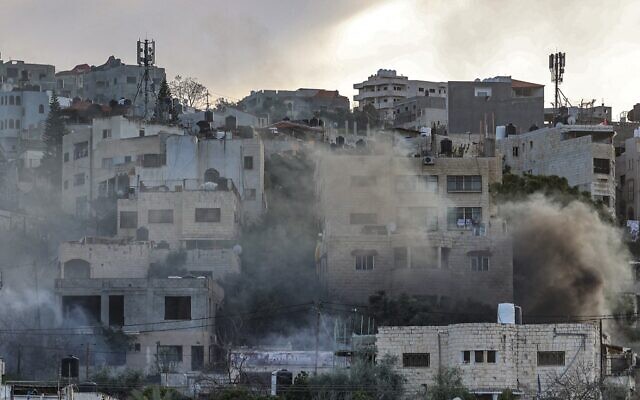
Negev Forum countries Israel, the US, Egypt, UAE, Bahrain and Morocco did send working groups to meet in Abu Dhabi in January to discuss the development of joint projects, but progress was limited amid a drop in enthusiasm and a desire to slow down the efforts from multiple countries, particularly Egypt, an Israeli and an Arab diplomat said last week.
“I hope Prime Minister Netanyahu understands the extent [to which] his policies are impacting the Abraham Accords,” another senior diplomat for a member country told The Times of Israel on Monday. “There’s concern whether he can really rein in his coalition partners.”
“And there’s real concern among Arab states that tensions will spread to Al-Aqsa [Mosque] during Ramadan, which would make it harder for us to move forward with the Negev Forum,” the senior diplomat said, speaking on condition of anonymity.
The West Bank violence has also eaten into the Biden administration’s bandwidth, which Israel would prefer to be largely reserved for dealing with the Iran nuclear issue. Netanyahu dispatched Strategic Affairs Minister Ron Dermer and National Security Council chairman Tzachi Hanegbi to Washington this week for meetings with US officials that were meant to focus on boosting cooperation against Iran. Instead, the headlines coming out of their sit-down with US Secretary of State Antony Blinken focused on prodding from the top US diplomat for Israel to take steps to de-escalate tensions with the Palestinians.
Recognizing he has a problem
A senior Israeli official briefing The Times Israel Monday said that Netanyahu “recognizes the ramifications of the events taking place in Jerusalem and Judea and Samaria (the West Bank),” and that this was part of the reason he answered the Biden administration’s call to attend the Aqaba summit.
“These Palestinian terror attacks have been taking place without the religious element that Ramadan risks adding, and we want to calm things down in order to avoid that kind of explosion,” the senior official said.
This played a role in Netanyahu traveling to Jordan in late January, in what was his first trip abroad since returning to the premiership.
“Israel recognizes the critical role Jordan can plan in either calming or whipping up tensions, particularly in Jerusalem,” the official said, referring to Amman’s role overseeing administrative conduct at the Temple Mount compound.
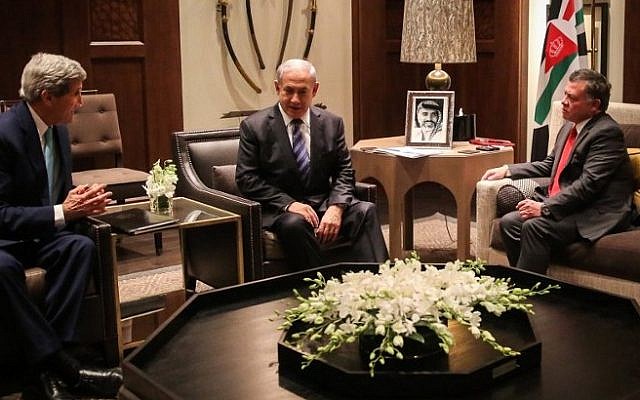
Two weeks after Netanyahu’s trip, Israel approved a series of smaller-scale measures for the Palestinians, which included raising the percentage of revenues collected at the Allenby border crossing that will go to the PA, lowering the tax Israel levies on Ramallah for fuel transfers, expanding the list of tax-free imports, and granting permits for Palestinians to pray at Al-Aqsa if the security situation remains calm.
Those steps pale compared to the ones approved by the previous government, which included expanding work permits for Gaza and West Bank Palestinians by the thousands along with approving IDs for thousands of undocumented Palestinians. Still, the fact that this new hardline coalition was willing to approve anything for the Palestinians is a positive development, a US official said.
What wasn’t in the communique
In return, an official familiar with the matter said that Israel used Aqaba to demand that the PA take a more aggressive role in combating terrorism in the northern West Bank, where several armed groups have gained a foothold as the PA is seen as increasingly illegitimate by the Palestinian public, amid growing frustration over Israel’s military control.
The official said that the PA agreed to have its security forces play a more active role in the northern West Bank amid Israeli warnings that Ramallah’s failure to act against armed groups there would leave the IDF with no choice but to enter such areas in its place. Still, Israel said it would do its best not to enter PA-controlled Area A of the West Bank, particularly in the weeks before and during Ramadan, the official revealed.
Israel also demanded at Aqaba that the PA condemn the recent terror attacks against Israeli civilians and rein in incitement that has been allowed to fester, the official said.
However, the issues of IDF raids and Palestinian incitement weren’t included in the final version of the communique, which notably didn’t specify any commitments beyond the Israeli ones regarding a temporary halt on settlement approvals.

Netanyahu was quick to point out that the commitment didn’t amount to a settlement freeze, since the Defense Ministry body that authorizes settlement construction only convenes on a quarterly basis anyway and will continue to do so as planned. Plus, the commitment did not extend to the plans for nearly 10,000 settlement homes that were advanced days before the Aqaba summit.
Also not mentioned in the communique was an Israeli commitment to release the tens of millions of dollars in tax revenues that it has been withholding from the PA over Ramallah’s payments to those convicted of terror offenses and to the families of attackers.
Nonetheless, Al-Sheikh told The Times of Israel that Jerusalem had agreed both before and at Aqaba to release those funds but has yet to follow through. Hanegbi denied having made such a commitment, saying the matter would be discussed at a follow-up meeting the sides are seeking to hold in Sharm el-Sheikh, Egypt on March 17.
Al-Sheikh said that without promises from the US, Jordan and Egypt that they will hold Israel accountable to the commitments it made in Aqaba, the PA will not come to Sharm el-Sheikh, and Monday’s deadly IDF counter-terror raid in Jenin likely further complicated efforts to ensure Ramallah’s continued cooperation.
The PA came under significant domestic criticism for attending the Aqaba summit amid the ongoing Israeli military raids in Palestinian cities. Al-Sheikh defended his participation, telling Palestine TV last week, “What did we lose? I want someone to tell me what we lost. Did we make concessions on important Palestinian positions? … Was security coordination with Israel brought back?”
He criticized Palestinians protesting against the summit, arguing that refusal to attend would not have stopped Israeli raids, and framed the summit as a significant PA accomplishment, given that Israel for years had refused to attend a political conference of the sort.
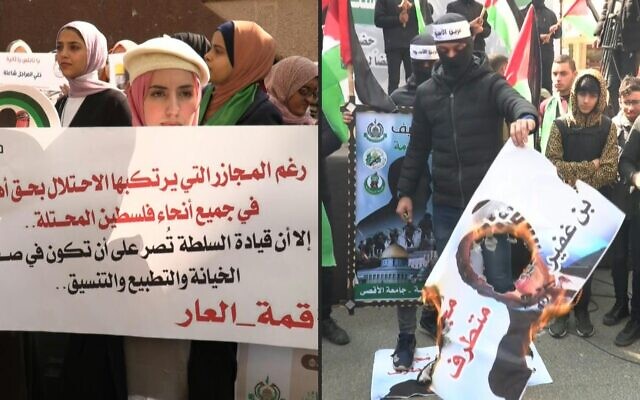
Keeping things in proportion
A US official similarly agreed that Israel’s presence at such a conference represented a “victory” as far as the Biden administration was concerned. “The previous government refused to do anything political at all, and we had to really push hard for them to just make phone calls, so getting them together in the same room is progress.”
The US official also expressed their pleasant surprise with some of what Israel agreed to in the Aqaba communique, including a “commitment to all previous agreements” along with the recognition of Jordan’s “custodianship” role in Jerusalem. This is something that Israel has never accepted before on paper, sufficing in its peace treaty with Jordan to only recognize the Hashemite kingdom’s “special role” at Jerusalem’s Muslim Holy shrines.
An Israeli official revealed that the decision by the Israeli delegation to sign off on a document that included mention of Jordan’s “custodianship” had been an oversight.
Abiding by the document has already proven difficult for Jerusalem, and Channel 13 reported that Netanyahu’s office held an off-the-book meeting on Sunday to discuss the legalization of the Evyatar outpost, despite its commitment not to authorize such wildcat communities for six months.
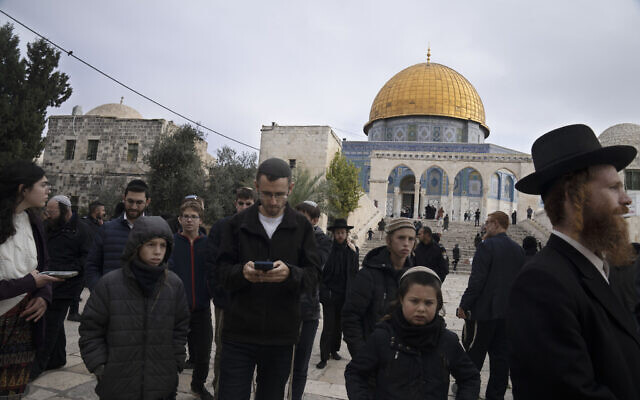
The Biden administration likely anticipated such developments, which is why US Ambassador to Israel Tom Nides has made a point of lowering expectations for what can emerge from Aqaba.
“Let’s not get carried away, folks,” he said last week. “This is not the Camp David Accords. This is not peace in the Middle East. This is small steps to try and avoid actions which [are] hurtful for the US, Israel, for the Palestinian people.”
As reported by The Times of Israel
